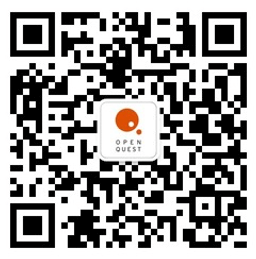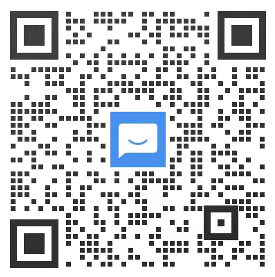作者│Rhonda Tranks
我剛從 IAF 亞洲年會回來,今年的年會在美麗的臺灣花蓮舉辦。大會有來自17個國家的260多名代表參加,內容非常棒。如果你想查看這些內容,可以登陸網站查看。這些內容如此豐富,真讓人難以選擇要參加哪一個工作坊。
我參加的工作坊之一,是由鐘琮貿 Shawn Chung 引導的「認知偏差」工作坊。這個工作坊經過精心設計,讓大家以小組為單位,在小組內通過大量的卡片一起學習。這些卡片每一張描述一個類型的認知偏差。Shawn說,他最初使用維基百科開始研究這個工作坊的材料。我們的任務是把認知偏差分類。隨著工作坊的進行,我們反思著我們自己的認知偏差 — 包括作為個體的認知偏差,以及群體中發生的認知偏差。當我們討論並分類這些卡片時,很快事情就變得很明顯:
❝ 我們正通過我們自己對事情的認知偏差篩選這些卡片。❞
我們很難不這麼做。認知偏差能説明我們處理資訊;但當我們做判斷和決定時,認知偏差同時也是障礙。每一組的討論,在不同的國家和文化背景下,加上語言的進一步過濾,變得更加有趣。最後,我感覺我就像身處於某種後現代的棱鏡或鏡子大廳中。感謝 Shawn 分享了這樣一個發人深思的工作坊。
這使我想起來 卡洛斯 • 卡斯塔尼達 的「力量的傳奇」—「我們在一個氣泡中」。在我們出生的那一刻就被放置在一個氣泡中。起初,氣泡是開放的,但然後它開始關閉,直到它把我們密封在裡面。氣泡就是我們的感知。我們一生都生活在氣泡中。在它的圓牆上所看到的,是我們的反映。所反映的事物就是我們對世界的觀點。我們在出生的那一刻別人用描述的方式給與我們這個觀點,直到我們的注意力完全被它抓住,別人的描述就變成了我們的觀點。
我們都有認知偏差,我有,你也有。它們存在於我們所引導的團體以及我們身處的團體之中。作為引導者,我們如何做才能發現,識別,應對,減輕我們自己和那些在群體中顯露出的認知偏差。我們究竟能否打破氣泡?如果可以,我們如何打破它才是負責任的和有道德的?不去打破氣泡就是不負責任的嗎?當我們自己的認知偏差受到挑戰時,我們又如何應對?
我回想起最近一次引導裡的「可獲性層迭」和「群內偏見」認知偏差。兩者在群體中都強烈的發生作用,並產生負面影響,但是我真的只在事後才弄清楚當時發生了什麼事。在那一時刻,到底是什麼認知偏差在我的腦中發生作用,使我錯過了正在發生的事?如果我注意到這些,還可能錯失其他什麼嗎?自從 Shawn 的工作坊以來,我一直沉浸在思考和閱讀有關認知偏差的內容,而這可能持續個幾年。 :-)
我非常有興趣知道他人關於認知偏差和引導的洞察和智慧。你的想法和經驗呢?
Cognitive bias and life in a bubble (original)
I’ve just returned from the International Association of Facilitators ( IAF ) Asia conference, held this year in beautiful Hualien in Taiwan. Great conference 260+ delegates from 17 countries and a fabulous program. It’s still up on the web if you want to check out the program. It was so hard to choose workshops.
One of the workshops I attended was on cognitive biases led by Shawn Chung. The workshop was a well-designed collaborative learning approach as sub-groups worked through a myriad of cards each describing a different biases. Shawn said he initially used Wikipedia to start his research for the workshop. We were set a task to categorize the biases. Along the way we reflected on our own biases – as individuals and what happens in groups. It soon became evident as we discussed and sorted the cards that we were filtering through our own biases. It’s pretty much impossible not to – biases help us process information, but they are also a hindrance when it comes to judgments and decision making. Discussions were made even more interesting by the different nationalities and cultures at each table and the additional filtering through language. In the end I felt like I was in some sort of post-modern prism or hall of mirrors. Thank you Shawn for such a thought provoking workshop.
I was reminded of this from Carlos Castaneda’s Tales of Power – “We are inside a bubble. It is a bubble into which we are placed at the moment of our birth. At first the bubble is open, but then it begins to close until it has sealed us in. The bubble is our perception. We live inside that bubble all our lives. And what we witness on its round walls is our reflection. The thing reflected is our view of the world. That view is first a description which is given to us from the moment of our bird until all our attention is caught by it and the description becomes a view.”
We all have biases – I do and so do you. They exist in all groups that we facilitate and that we are a part of. How do we as facilitators work to uncover, recognize, confront and mitigate for biases – our own and those that surface in groups? Can we ever burst the bubble and if so how do we do it responsibly and ethically? Is it irresponsible not to burst the bubble? How do we react to our own biases being challenged?
Some biases that come to mind in a recent facilitation are ‘Availability Cascade’ and ‘Ingroup Bias’. Both were strongly at work in the group and were having a negative impact but I only really worked out what was happening after the event. What cognitive biases were at work in my mind in the moment that I missed what was happening? And if I attended to that what else might I have missed? Since Shawn’s workshop I have been immersed in thinking and reading about bias – it could keep me going for a few years :-).
I’m interested in the insights and wisdom from others on cognitive biases and facilitation. Your thoughts and experiences?
作者簡介:
Rhonda Tranks。是一位CPF和 IAF 評審,在許多國家已經訓練和輔導上百位引導者。Rhonda 在近三年在 IAF 全球理事會中擔任許多職務。她曾任維多利亞分會(Victoria Chapter)的主席,最近也進入 IAF 名人堂。Illuma Consulting 透過引導,培訓和教練促進正向改變。Rhonda專長於發展和牽引出內在智慧:轉換觀點,以新的洞察力面對問題,做適當的決策,和執行成功的結果。Rhonda 30多年來在管理,組織發展,學習發展和顧問領域工作,帶領她一路在發展和反思團隊引導者會面對的複雜和挑戰。她最近正開發自己的引導模式。她的引導經驗遍及澳洲,亞洲,歐洲,美國和墨西哥。她在 IAF 研討會已開過15個工作坊,遍佈非洲,亞洲,歐洲和大洋洲。
本文原文發表於Linked in,經作者同意在「OQ睿問引導」公眾號分享。





